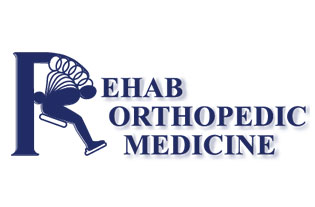If you read the statistics on the growing prevalence of sports injuries, the idea of engaging in sports training could have you running straight home to your couch. But, please don't do that. Sports have a proven track record as far as maintaining both mental and physical health. You do, however, need to follow some basic guidelines to reduce your risk of injury.
Athletes are warriors, and it's easy to underestimate the physical demands of your training. According to the CDC, more than 10,000 people in the US visit emergency rooms each year for sports-related injuries. A physiatrist, like Dr. D'Auria, can help athletes at all levels of fitness learn to monitor both pain and progress. By following the recommendations below and staying in tune with your own body, you have the best chance of maximizing your performance while minimizing that risk.
Don't Overhydrate
You probably already know how important it is to stay hydrated during periods of intense activity. Drinking too much water, however, can be just as dangerous. When sodium levels in the blood dip too low, you can get hyponatremia. This condition can be fatal. How do you avoid it? It's simple. Weigh yourself before and after your workout to determine how much water is lost. Then, plan to drink 16 ounces of fluid for every pound you typically lose.
Don't Push Through Pain
There are all types of pain that can occur during physical training. Knowing the difference, when in your routine it occurs, and what provokes it, are critical to avoiding injury. Is it shooting or radiating? Does it happen at the beginning, middle or end of your workout? Is it tender to touch? A physiatrist can help you determine what is going on and how it is impacting you overall - not just where it hurts. From there, you can take steps to avoid it in the future. Most times, you simply need to rest overused muscles.
Don't Over-Train
Did you know that there is such a thing as overtraining? Well, there absolutely is! Without periods of rest or light training between the maxxed out sessions, your body won't have the resources to build and repair tissue. And, if you're sick, it is better to rest so that your body can focus those resources on getting you back to health. Otherwise, you could make your illness worse and your time out of the gym, game or race even longer. For women, overtraining can cause menstrual irregularity which can lead to greater health problems. Ironically, reducing exercise intensity and consuming more calories can sometimes translate to better athletic performance!
Always Cross-Train
More and more coaches are making resistance training part of their athlete's workout routine. You see swimmers, runners and even baseball players pumping iron. That gain in muscle mass give athletes more power, but also may reduce the injury risk. Yoga and Pilates keep powerful muscles flexible. Bicycling has been shown to improve a runner's speed. And, we now know that jumping and other higher impact activities can improve the skeletal system, which could mean fewer fractures.
At Rehab Orthopedic Medicine, our goal is not just to get you relief from your injuries; it is to help you monitor your own body as you put athletic demands on it. Especially when you are in team sports, it is critical that you pay attention to what is going on with your own body so that you can take that into account as you train. You may all be on the same field, but your health is your own game.
For physical therapy, or to learn more about how to monitor your progress and any pain you may experience on your athletic journey, please contact us!

